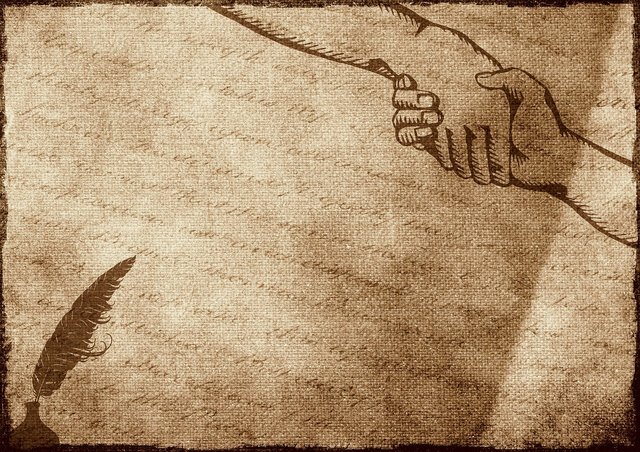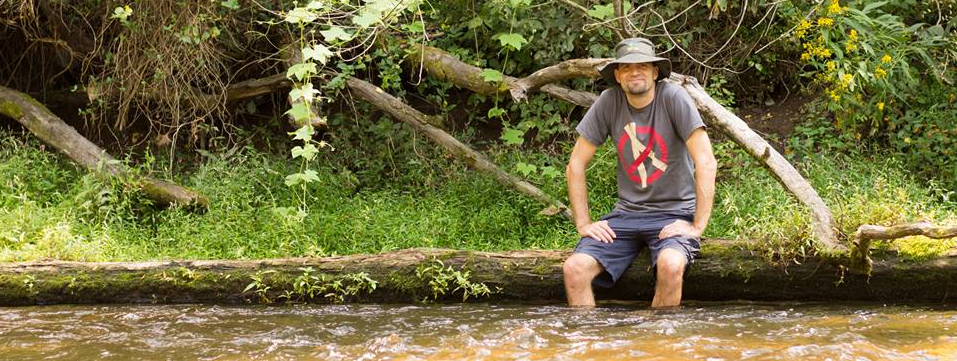Solving the Problem of Governance

Have you ever thought about how groups don't actually make decisions? A corporation, organization, or government doesn't actually decide anything. It's always individual people in large and small groups who figure out some form of consensus to represent the whole. This disconnect creates problems because not everyone is represented and the individuals who did actually make a decision are not individually held accountable to those decisions as the group identity takes over.
Strong hierarchies with a single authority, monarchies, tyrannies, and dictatorships avoid this problem by making it very clear who makes all the decisions. They also have a track record for increasing human suffering because power corrupts. Many believe the 1776 experiment of a democratic constitutional republic that became the United States of America was the best option at the time, but it's not perfect. The anti-federalist papers make some pretty compelling arguments for why a strong central federal government was a bad idea. Lysander Spooner in No Treason: The Constitution of No Authority goes even further to show the constitution was a mess to begin with because it was not a contract. In June of 2018, I wrote about the problems of the EOS Constitution not being a contract either.
Contracts solve some of these problems because they involve individual people who are actual decision makers. They clarify exactly what the expectations are and how they will be enforced and amended over time. Ideally, in the world of smart contracts, everything can be done on chain where the methods in code directly relate to the agreed upon language in the constitutional document. This allows for individuals with a shared goal to come together and clarify their expectations via a constitutional document and corresponding code set forth as a contract they actually sign with their private key. Once the expectations are clearly communicated, structure can be implemented for efficiency. If direct voting on every issue doesn't make sense, members of the group can elect representatives (custodians, stewards, board members, etc) to make decisions on their behalf. Enforcement measures can include confiscation of a locked up bond, removal as a custodian candidate, custodian, or member, or some other mechanism outlined in the constitution.
This, I think, creates an exciting possibility for coming to consensus and decision making. The individuals who vote for a custodian are known, the custodians are known, and the votes of the custodians are also known. It solves the "groups don't make decisions" problem while also adding accountability via blockchain transparency and immutability to the individuals who are making decisions. This is why I'm excited about DACs and DAOs.
There are still many problems to be solved. How are votes of the members weighted? Is it one human, one vote? If so, how are individual humans identified without serious privacy violations or involvement of nation state ID systems? Beyond that, how do we determine who actually has skin in the game? Not all votes have equal value to the group of people with a shared goal. If instead a token-weighted vote is used, how are the tokens distributed? How do members obtain tokens? If they are only available via purchase, how do we prevent a plutocracy?
These are questions I'm working through quite a bit, especially now that I've been asked to be the executive director for both the EOS Foundation (which is still just a conversation) as well as the Foundation for Interwallet Operability. Both of these organizations I intend to see launch as DAOs (decentralized autonomous organizations). I'm hoping we learn from previous DAO failures, and we get substantial community engagement in the early foundational decisions so what we create becomes "ours" instead of a "theirs" created by someone else and sold to us as a community.
At times I feel a little overwhelmed at the roles I've been asked to play. Experts in governance are needed to make this work, but I'm also considering there may not be such a thing as an expert in governance. There is no perfect governance solution today. Some might even argue there aren't even very good ones.
"Many forms of Government have been tried, and will be tried in this world of sin and woe. No one pretends that democracy is perfect or all-wise. Indeed it has been said that democracy is the worst form of Government except for all those other forms that have been tried from time to time..."
Winston S Churchill, 11 November 1947
Some people balk at the word "governance" to begin with. To govern implies to rule and rulers imply slaves. Conscious awareness requires autonomy and freedom in order to actually be alive and experience change over time influenced by the will of the individual. At the same time, we must protect what we value. Structure, order, and rules (ideally outlined within a constitution signed as a contract) help us navigate our lives so we can make decisions and learn from the outcomes.
So what's the best we can do? There are no perfect solutions and most any system can be gamed by a determined attacker. I'm currently thinking we can acknowledge our governance limitations and instead of trying to create a perfect system which can defend against every bad actor, we create systems which attract really good people and can change over time. By good, I mean truthful, trustworthy, integrous, fair, logical, rational, compassionate, empathetic, intelligent, creative, responsible, humble, and more. Since individuals are actually making the decisions, no matter which system of governance is used, the quality of the outcome will always depend on the quality of the participants. If we can attract really good people, we can hopefully make it exceedingly uncomfortable for less than good people to participate. Good people defend what they value and call out trolls, deceptions, logical fallacies, fraud attempts, power grabs, and more.
I think transparent DACs and DAOs can do this much, at least. The members are known, the custodian/steward candidates and elected custodians/stewards are known, and all votes and actions are transparently available for all to see while also being immutable which means history of what actually happened can't be changed. If a meritocracy could ever be created, those participating in it will welcome the transparency which highlights the value they create. Those looking to be moochers or looters will shrink away from the light.
Ultimately, it all comes down to creating communities of highly conscious people. Who is ready to create a world we all want to live in? Who can learn the tools necessary to facilitate healthy communication (such as NVC)? These are the types of people I'm looking for to help me with both the EOS Foundation and FIO. If we can demonstrate this model well, the future for non-profits, corporations, and someday even governments could be much better for our children.
Are you with me?

Luke Stokes is a father, husband, programmer, STEEM witness, DAC launcher, consultant, and voluntaryist who wants to help create a world we all want to live in. Learn about cryptocurrency at UnderstandingBlockchainFreedom.com









I've been thinking about governance for a long time, too.
I proposed a mechanism for community decision making here.
Not sure if it could be applicable to a DAO, but doesn't hurt to throw stuff at the wall :)
Well said. :)
We need to move away from the ideas of social contracts and implied consent. Blockchains may allow the recording of explicit informed voluntary consent to defined terms and conditions. But that ceases to be government in the political sense immediately, not that it's a bad thing.
https://steemit.com/tauchain/@o1o1o1o/re-dana-edwards-tauchain-may-allow-for-the-development-of-the-first-smart-constitution-20180531t080757032z